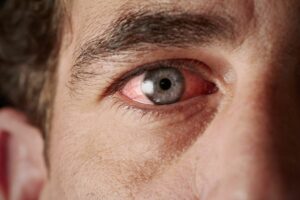Recently, legislators in Florida considered a proposed law that would’ve capped tetrahydrocannabinol (THC) in smokable medical marijuana at just 10%.
While this proposal ultimately failed, it raises questions surrounding THC levels in both medical and adult-use marijuana. Given THC’s well-known psychoactive properties and its perhaps lesser-known therapeutic benefits, does enforcing a maximum level of THC in legal marijuana products make sense?
FOLLOW US ON FACEBOOK & INSTAGRAM
The short answer is: no. Let’s take a look at what the Florida proposal entailed, and what supporters and critics of the THC limit argued.
Florida Proposes Limiting the THC in Medical Cannabis
The Florida House was considering a bill that introduced regulations for the state’s medical marijuana program. Previously, lawmakers had proposed banning smokable forms of medical marijuana. But a court order found that such a ban violated a 2016 voter-approved constitutional amendment.
So, Gov. Ron DeSantis threatened that if the Florida House, which has generally been against liberalizing marijuana laws, didn’t repeal the smoking ban, he would drop the state’s appeal against the court order.
While the House eventually repealed the ban on smokeable medical marijuana, some lawmakers pushed back by trying to add the very low limit of 10% THC in marijuana flower intended for medical use.
This level is about half of the 20% THC that most cannabis growers in Florida say their plants currently contain.
Oddly, however, despite the low THC limit on smokeable cannabis, the same bill would’ve placed a limit of 7,000 mg on a 35-day supply of edible cannabis. This works out to 200 mg per day, an amount that’s actually much higher than what most medical marijuana patients need.
RELATED: TOP 8 MOST POTENT HIGH-THC MARIJUANA STRAINS
Ultimately, the THC limit failed to pass after the Florida Senate voted against the amendment. Since the legislative session was already coming to a close when the amendment was defeated, there wasn’t enough time for the House to try to revive it. As a result, there won’t be a limit on THC in smokeable medical marijuana in Florida— at least for the time being.
Debate Over the Potential Pros & Cons of High-THC Cannabis
Lawmakers who were in favor of the THC cap primarily based their support on the risks that high-THC cannabis could cause to children. They argued that evidence suggests that high-THC cannabis has been linked to psychosis and schizophrenia. They also pointed out that 14 other states have also imposed THC limits on medical marijuana.
RELATED: WHY THC MAY HELP WITH A TRAUMATIC BRAIN INJURY
Unsurprisingly, there was plenty of pushback against the proposal, which ultimately helped lead to its defeat. As mentioned, most Florida-grown cannabis is already around 20% THC.
Additionally, opponents pointed out that despite the House’s general anti-marijuana stance, a THC cap would have required medical marijuana patients to smoke more, not less, cannabis in order to feel the same effects as they would with what’s currently available. Opponents called this a tax on medical marijuana patients, which would have also been ironic given that the Florida House is generally anti-taxation.
Due to these issues, the limit would’ve forced people who rely on high-THC cannabis to turn to the illicit market for help. This could have ended up turning otherwise law-abiding citizens into criminals who could potentially face jail time.
Many opponents also questioned why lawmakers were attempting to limit THC amounts for medical marijuana without doing the same for other, much more potent and addictive substances. Case in point, Tonya Bailey, a veteran who consumed medical marijuana to kick her opioid use, testified before the Health and Human Services Committee about why the limit would do more harm than good.
RELATED: HOW THC & CBD WORK TO FIGHT PAIN
Tonya told the committee, “You don’t put a 10-milligram limit for morphine. Would you tell a cancer patient they can only have 10 milligrams of that? It’s unacceptable and ineffective.” Indeed, research has shown that marijuana could play a crucial role in helping many people in pain overcome their opioid addictions.
RELATED: HOW CANNABIS CAN BREAK THE CYCLE OF OPIOID ABUSE
As for marijuana being linked to psychosis: While it’s true that studies have found a correlation between marijuana consumers and cases of psychosis, there has been no evidence that cannabis actually causes psychosis.
The Health Benefits of THC
While the proposed cap failed, it highlights a lingering stigma against THC, even among some who otherwise recognize cannabis’s health benefits. Unlike cannabis’s other main cannabinoid, cannabidiol (CBD)—which doesn’t cause consumers to feel high like THC can—THC is sometimes incorrectly seen as having fewer, or no, health benefits.
RELATED: THE PROS AND CONS OF PSYCHOACTIVE THC
That view is not only simplistic, it’s wrong. Folks with medical conditions already consume THC to help relieve symptoms like:
- Nausea
- Fatigue
- Sleep disorders
- Lack of appetite
- Chronic pain
Cancer patients, especially, have long relied on highly potent cannabis in order to reduce the severity of their symptoms. The National Cancer Institute, for example, points out that numerous studies suggest cannabis has many potential health benefits for cancer patients.
Given that frequent cannabis consumers, such as medical marijuana cancer patients, generally develop a high tolerance for THC, forcing a THC cap would deny them the cannabis they need to find relief.
RELATED: STUDY FINDS CANNABIS RELIEVES CANCER-RELATED SYMPTOMS
While it’s true that high-THC marijuana isn’t appropriate for everybody, ultimately the decision is probably not one that lawmakers should resolve. Instead, as with any medical decision, it’s one that’s best left to doctors and patients.
Photo credit: Michael Nosek/Shutterstock.com
If you’re new to cannabis and want to learn more, take a look at our Cannabis 101 index of articles. And if you have questions about cannabis, ask them and our community will answer.






